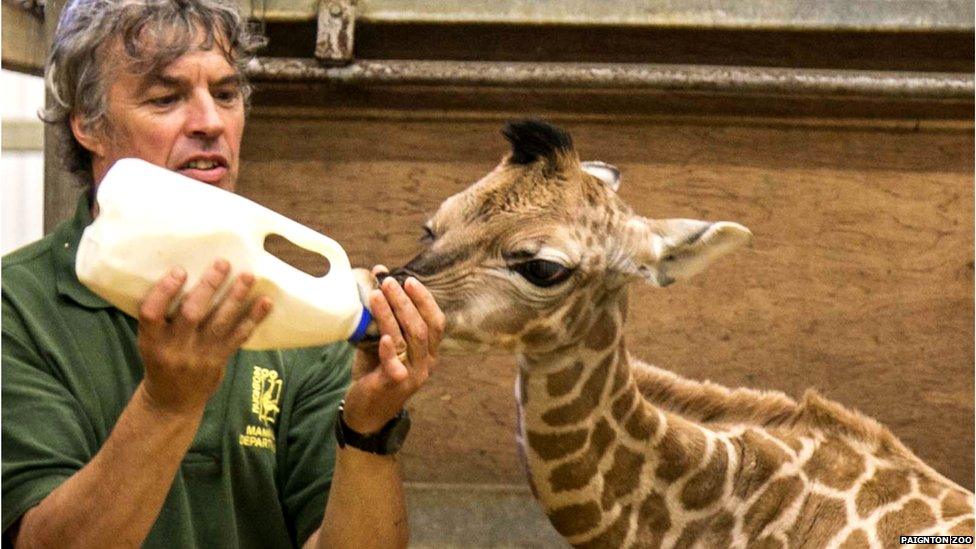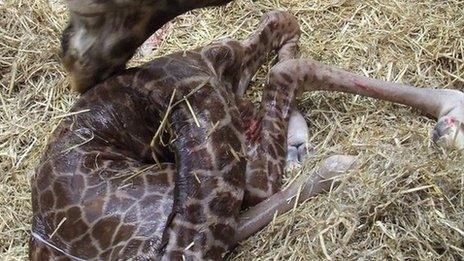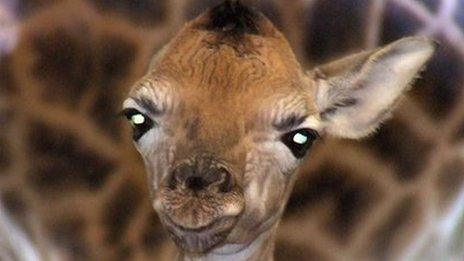Rothschild's giraffe calf with bent neck put down
- Published

The three-month old unnamed calf was bottle fed by staff after being rejected by his mother
A rare Rothschild's giraffe was put to sleep after X-rays showed a kink in its neck was caused by collapsing vertebrae joints.
Paignton Zoo said treating the three-month-old male calf would have been prolonged and stressful.
The condition - discospondylitis - is usually caused by infection and, even after treatment, the giraffe would have had a "potentially painful neck".
Paignton Zoo said it was a difficult decision, but the right thing to do.
The giraffe, which was born in May and had not been named, had been bottle fed by zoo staff after it was rejected by its mother.
It was hoped concern about its neck would resolve as the calf grew, but it became more apparent over the past two weeks.

Rothschild's giraffe
•The species is identified by its broader dividing white lines and no spots beneath the knees
•Classed as endangered by the International Union for Conservation of Nature
•Native to Kenya, Uganda and Sudan
•In the past, giraffes were hunted for their tails, which were used as good-luck charms, sewing thread and even fly swats

Curator of Mammals, Neil Bemment, said the giraffe had been resting his head on the zoo fence so had been put on painkillers "as a precaution" while X-rays were arranged.
"He'd started to develop a distinct kink in his neck and X-rays showed that at least two of his vertebrae joints were collapsing," Mr Bemment said.
"Treatment would be prolonged and stressful and he would still be left with a bent and potentially painful neck which would become accentuated as he got older and his neck grew proportionally longer."
Rothschild's are one of the most endangered species of giraffes, with only a few hundred left in the wild.
In June last year, a one-month-old Rothschild's calf was put to sleep after keepers found it collapsed in its stall.
The zoo said although discospondylitis is a known condition, it is not common and it is the first instance of it at Paignton Zoo.
- Published17 June 2015

- Published21 August 2013

- Published28 August 2013
